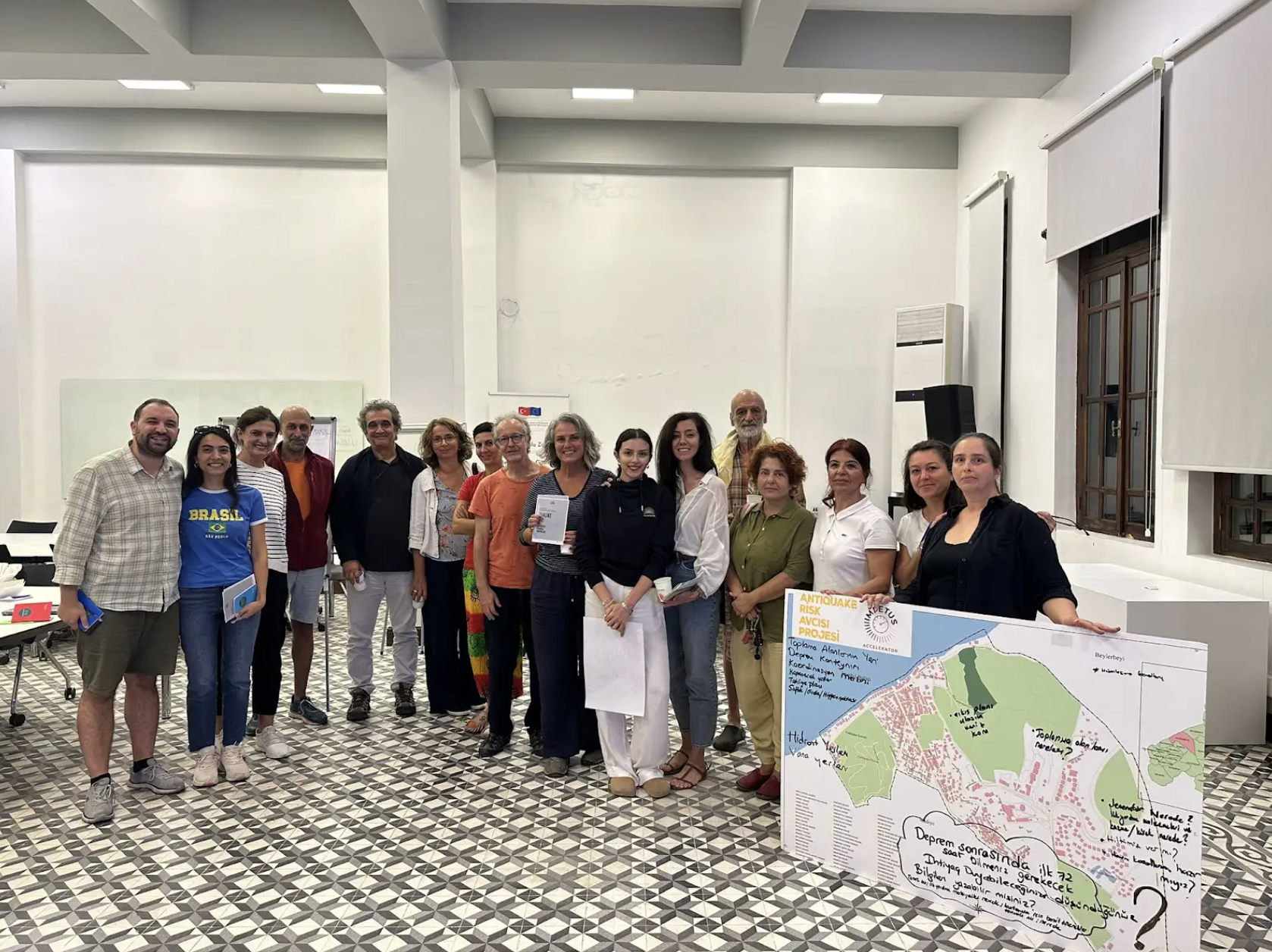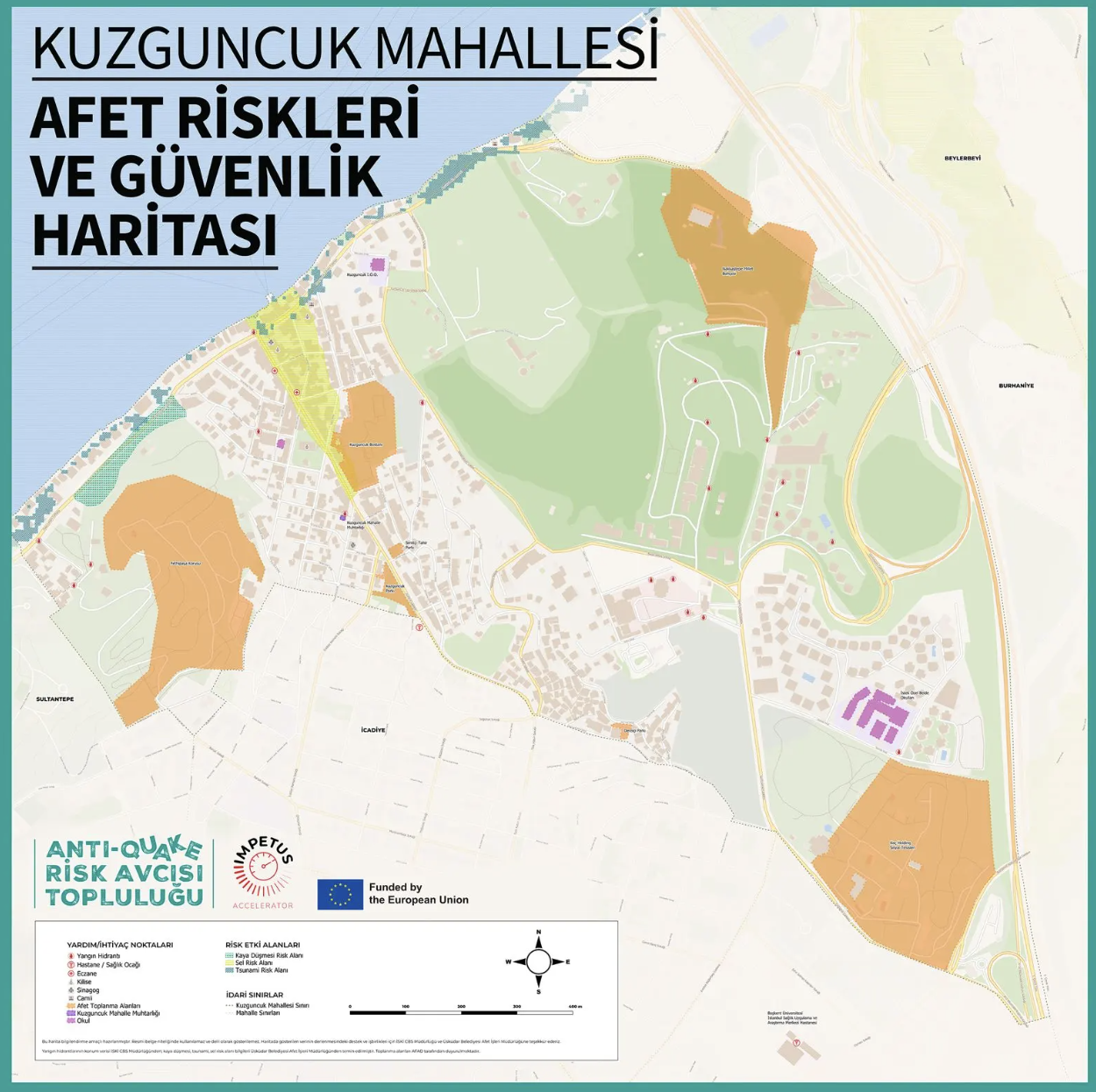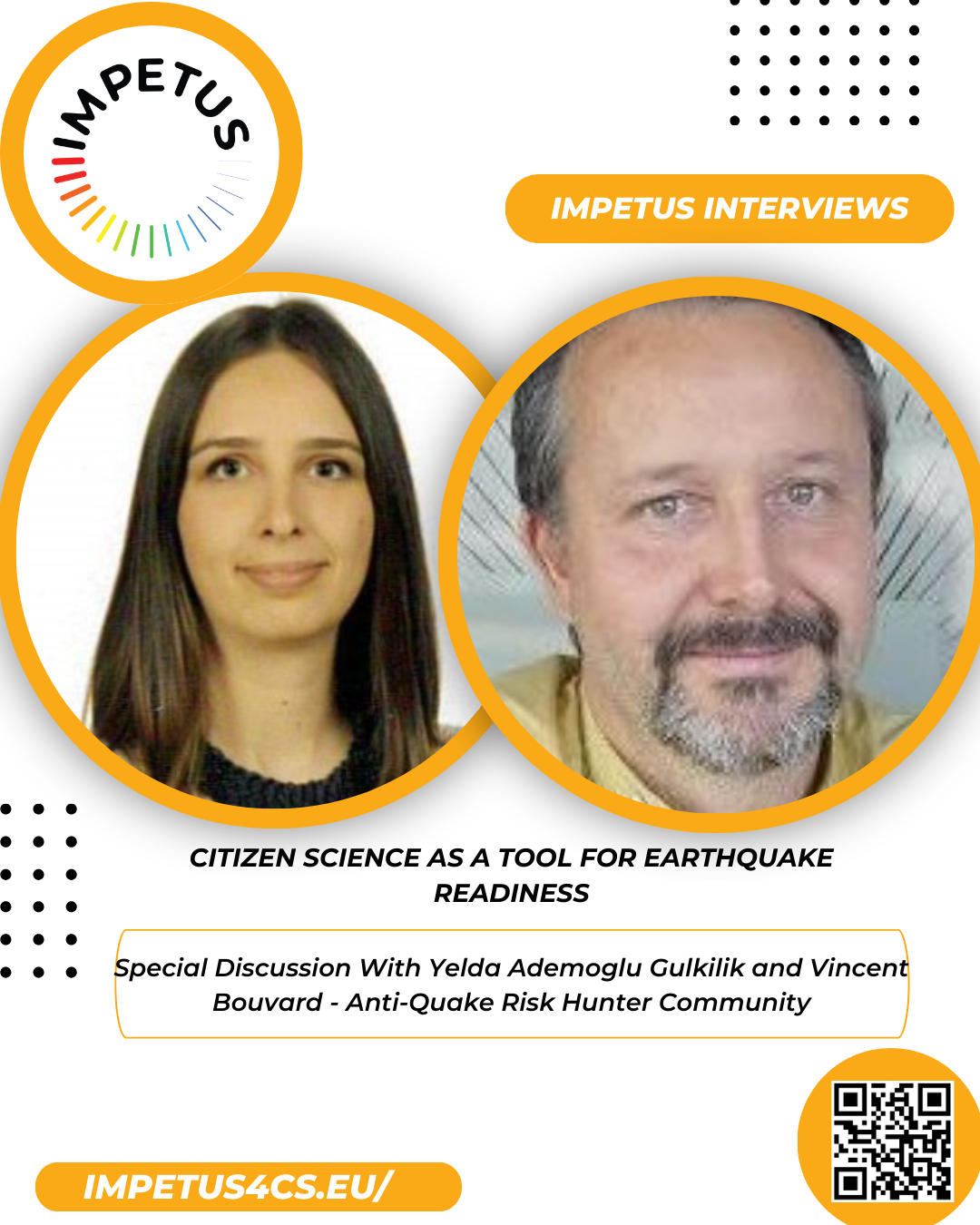What happens when neighbours, students, urban planners, and everyday residents decide they’re no longer waiting for someone else to “fix” disaster preparedness?
In Kuzguncuk, Istanbul, that spark of collective action has evolved into the Anti-Quake Risk Hunter Community — a grassroots initiative that transforms local knowledge into life-saving insight. Equipped with clipboards, smartphones, and determination, residents have mapped hazards, identified safe zones, and contributed to a living, continually updated disaster-risk atlas of their neighbourhood.
Bold, creative, and radically participatory, the project has been recognised with the Digital Communities Award at the 2025 European Union Prize for Citizen Science. At its heart are Yelda Ademoglu Gulkilik and Vincent Bouvard, who have guided the initiative from a modest local experiment to a widely admired model of citizen-powered urban preparedness.


What began as a small community effort has grown into a structured and methodical programme grounded in the town-watching methodology — a participatory assessment approach endorsed by the United Nations Office for Disaster Risk Reduction. More than 150 residents, including 66 specially trained “citizen scientists,” have contributed observations, mapped critical points of vulnerability, identified safe gathering spaces, and gathered information for a continuously evolving Disaster Risk & Safety Map. Available in both digital and printed forms, this map now serves as an essential resource for residents and a bridge between grassroots insights and formal disaster-planning frameworks.
The Antiquake project has been part of the IMPETUS family for some time. Joining our second cohort of Citizen Science Initiatives as a kick-starting project — and later continuing in our third and final cohort as a sustaining project through the IMPETUS accelerator — we have had the privilege of watching the initiative grow, mature, and gain international recognition for its important and innovative work.
The 2025 EU Prize jury highlighted the project’s broad coalition of collaborators, including residents, schools, municipal authorities, and disaster-management professionals. This diversity has enabled Antiquake to cultivate a truly collaborative, bottom-up approach to risk assessment and community resilience, supported by a dynamic digital platform. Youth participation has been particularly significant, with students creating accessible emergency-preparedness materials and taking part in evacuation drills.
The project’s strong emphasis on capacity-building, community engagement, and open data offers an exemplary model for other regions — not only for earthquake preparedness but for tackling a wide range of natural hazards. By placing collaborative digital technologies at its core, Antiquake demonstrates how communities can play an active and meaningful role in Europe’s digital transformation.
Watch the full interview below:



